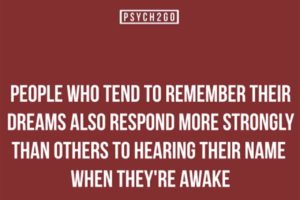Humans are not clear communicators, by and large. We all think we communicate clearly with each other both in writing and verbally – but it’s astonishing when you really analyze peoples’ communications and then what they truly wanted to convey and realize how different what they thought they said is from what was understood.
My best friend is actually a Master Communicator (MC), which often drives me nuts. She’s constantly asking for clarification on things I think are so obvious that it almost feels like she’s being obtuse at times. Yet the more I come to understand the importance of being crystal clear in my writing and speaking, the more I comprehend why she does what she does. It’s not to be a nitpicker… it’s a way to teach the other person that they are not being nearly as clear in expressing their thought as they believe they are.
A stark example of this for the past year has been my landlord. In roughly ninety percent of our conversations, I have a very hard time understanding what he’s telling me. He speaks fast, his sentences are hastily constructed and incomplete…he just doesn’t think before speaking. It all makes for a major job just to get through a conversation with him and come out the other end with any sort of idea what we just talked about. My MC friend came to the following conclusion: he thinks he’s communicating better than he is.
We all do.
Just like my landlord doesn’t actually realize he’s not being nearly as clear as he thinks he is, people, in general, all believe they’re expressing their thoughts and ideas perfectly fine. But then if that was truly the case, why are there so many misunderstandings? Partially because people aren’t actually listening, they’re just waiting for you to stop talking so they can speak. But also partially because we’re not making it easy for others to understand what we mean, especially in the day and age of information overload where we’re all being bombarded and have fifteen thousand things running through our heads at any given moment.
Whether it’s a guy on one of my project teams who uses 10,000 more words to say one thing than he needs to or the politically correct corporate-speak so many of us are subjected to day in and day out… whether it’s dancing around the truth for fear of hurting other people or out of fear of embarrassing ourselves…whether it’s an egotistical need to draw telling someone something out into a huge dramatic story or simply that we forgot other people aren’t inside our heads with us, we could all use some tips and tricks on communicating clearly, me included!
1. It Starts In Your Own Mind.

Communicating clearly to other people, whether when speaking or in writing, starts in your mind. Rushing into saying something because you want to be heard without taking time to consider your words and whether or not they properly express your true meaning and intent will often lead to such unpleasantness as verbal diarrhea, stammering, lots of “um’s” or “uh’s” or a stream of consciousness that confuses more than it clarifies. Gather your thoughts before you speak (or write).
2. Climb Outside Of Your Own Head.

Though this may seem counterintuitive given that I just recommended you begin by going into your own head, this is a step-by-step, with each one building on its predecessor. Once you believe you know what you want to say/write, climb outside of yourself long enough to consider your audience. Is the message you wish to convey appropriate to those you wish to convey it to? Is there likely to be something someone else might take offense at? Even if you don’t find something offensive, that doesn’t mean your audience won’t. This is sometimes difficult for me to remember. Often we want to say “They just need to get over themselves; they can’t handle the truth, that’s not my problem.” Well, if you want to be labeled an asshole, then you’re good. If you actually want people to hear you and respect what they hear, not so much. Consider who you’re speaking to, what their level of comprehension might be and remember that they aren’t privy to your thoughts so you can’t expect them to “automatically” know what you mean.
3. When Communicating Verbally, Tailor Your Words To The Reactions Of Your Audience.

The beauty of real-time spoken communication is that it gives you an in-the-moment gauge of how well or how badly you’re doing. Going back to my example of my landlord, it astonishes me that the fact I ask him ten times in a row, “What?” after he repeats a single sentence over and over doesn’t help him glom onto the fact that I’m not understanding what he’s saying. Figuring out whether it’s a problem on my end or on his end would be the next course of action for someone who was actively participating in the conversation. But he’s just not seeing that me going “What?” all the time means there’s a communication problem that needs to be solved. Pay attention to your audience’s reaction and adjust accordingly, even going so far as to say something self-deprecating like, “I’m sorry, did that make sense or am I just talking out of my hind end?” – it usually gets a laugh, puts everyone at ease and nobody feels stupid, then, about admitting they didn’t get what you said!
4. When Communicating In Writing, Edit Before You Send.

With written communication we have a blessed luxury not afforded us when speaking spur-of-the-moment (e.g. not from a previously written speech): we can edit as many times as we want before we hit the Send button (or mail the letter, if you still do snail mail). This is something my Master Communicator best friend has (painfully, for her – sorry, BFF!!!) hammered into me over the many years I’ve known her. What started out as editing of fiction turned into help with blog posts and difficult emails (or emails to notoriously difficult people). She’s taught me to really look at what I’m saying, keeping in mind that with the written word there is no tone of voice to help convey meaning. You are literally being taken at the face value of the words you choose. Choose your words wisely to ensure they convey what you intend, for they may come back to haunt you if you don’t.
5. Do Not Consider Feedback As A Slight Or An Attack, But As A Lesson Learned.

If there’s anything that being a Project and Program Manager for more than a dozen years – as well as a fiction writer – has taught me, it’s not to take ‘less than positive feedback’ personally. More often than not, what a person says about you or something you’ve written or said tells you more about them than it does about you. However, when it revolves around something you said or wrote (versus being strictly personal against or toward you), criticism and feedback from others provide insight as to where you may not have been as crystal clear as you thought you were. Just because a person immaturely chooses to give you that feedback in a negative way doesn’t mean there’s not something to be learned.
My editor friend is often flummoxed when reviewing someone’s work of fiction because she can’t figure out how a person got from Point A to Point B, or she doesn’t understand why a character is doing or saying a certain thing, or acting in a certain way. When she confronts the author about it, she’s often told, “Oh, it’s because of…” and then given a long explanation. To which she replies, “Well, you can’t sit on the reader’s shoulder and explain that to them when they ask – it needs to actually be explained within the story!” The same holds true for nonfiction writings. If someone comes back to you with a response that seems completely off-base to what you wrote, take that as your cue that you weren’t nearly as clear as you thought you were. Learn from feedback. Don’t take it personally. Take it as a chance to improve yourself and your writing or speaking ability. Bless and thank the person for the opportunity to learn, think about how you can improve, salvage what you can by clarifying (without calling the other person an idiot) and move on.
Above all, starting out by bringing clarity to your own thoughts is key. If you are 100% clear on what you want to say, what you’re thinking or what you wish to convey, your success rate in communicating that clearly to others will always be much higher. Then everyone will start calling you a Master Communicator!
Contributor:

Christine Rose
www.oahupm.com













